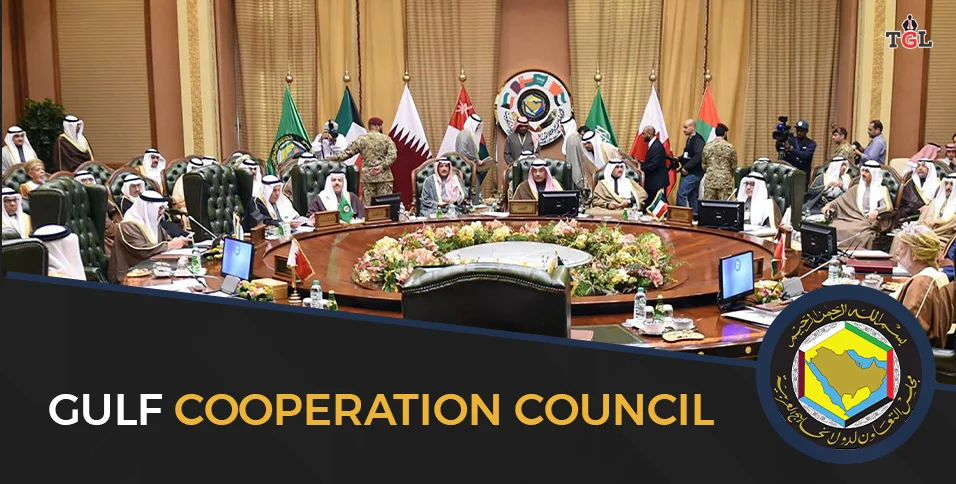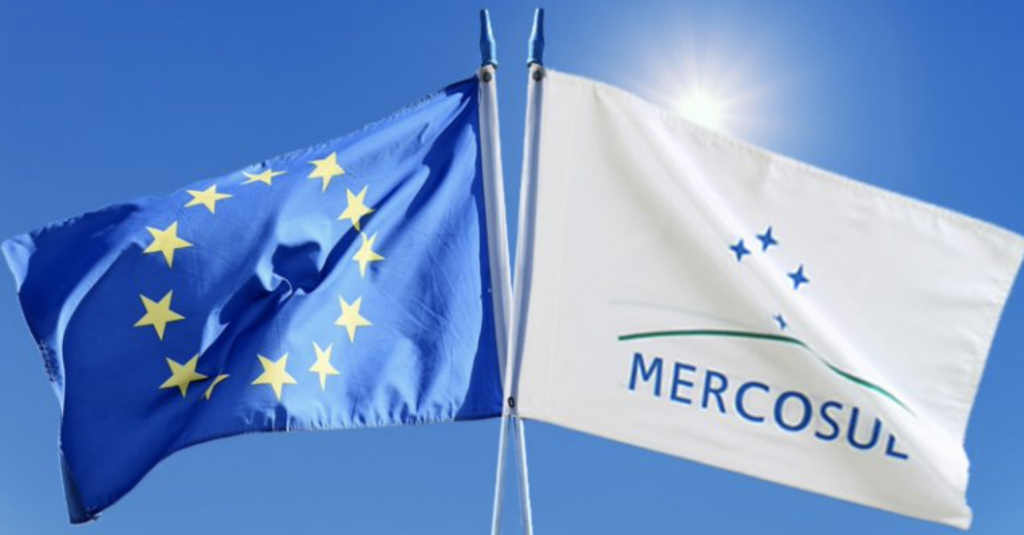Category: New Generation Of Trade Agreements
UK-GCC Trade Deal: Big Questions Over Trade Union & Human Rights
 The Labour Government have made a trade deal with the GCC (Gulf Cooperation Council), a priority which many employment rights specialists and trade unions will be watching closely.
The Labour Government have made a trade deal with the GCC (Gulf Cooperation Council), a priority which many employment rights specialists and trade unions will be watching closely.ETUC & CCSCS Unions Demand Enforceable Labour Rights Clauses In New EU & Mercosur Deal
 The European TUC and unions in Argentina, Brazil, Chile, Paraguay & Uruguay have called for the EU – Mercoosur trade deal to contain enforceable commitments to International Labour Organisation rights – with penalties for violations.
The European TUC and unions in Argentina, Brazil, Chile, Paraguay & Uruguay have called for the EU – Mercoosur trade deal to contain enforceable commitments to International Labour Organisation rights – with penalties for violations.
In a letter to the European Commission Esther Lynch, ETUC General Secretary and Quintino Marques Severo, CCSCS President say the ETUC and the Coordinadora de Centrales Sindicales del Cono Sur (CCSCS) they do not support the EU-Mercosur customs union agreement as it currently stands because it fails to provide guarantees for workers’ rights and their jobs.
The ETUC and CCSCS say before reconsideration of the agreement resumes later this year crucial aspects of the agreement need to be addressed if workers are to support a deal.
- Firstly, for transparency and democratic legitimacy, trade unions, represented by the ETUC and CCSCS and the Labour Forum they have set up, must be consulted in these negotiations and have access to the texts that will profoundly affect their members.
- Secondly, a voluntary and non-binding approach towards labour rights in trade agreements does not protect workers from violations of labour and trade union rights, nor does it guarantee a balanced representation of social partners and civil society organisations in the monitoring mechanisms of the agreement. This non-binding approach has demonstrably failed and is also counterproductive for an agreement. ETUC and CCSCS have asked for binding labour clauses in the deal including sanctions, taking into consideration ILO recommendations, and the role of trade unions in monitoring and enforcement. The unions says they will continue to press for a trade and sustainable development chapter that prioritises jobs and workers’ rights as well as the preservation of the environment, and is binding on all the parts of the Association Agreement.
Unions have suggested the integration and expansion of the Labour Forum to tripartite participation of States, Employers and Unions and called for the same financial support that would be put at the disposal of SMEs to meet environmental requirements, to be put towards social partners’ capacity building and compliance with labour laws and ILO conventions.
Unions say they are following with growing concern the policies and measures that are taking place in EU-Mercosur talks, tending to drastically deregulate the State, subjugate acquired labour, trade union and social rights such as freedom of expression and the right to free protest, that are underpinned by very well-established jurisprudence, including at international level.
They say these measures seriously threaten the legitimacy and solidity of democracy in the region. Trade union organisations, that clearly expressed their disagreement in the past with similar measures, reiterate their solidarity with the affected sectors and demand unrestricted respect for democracy and fundamental rights.
A binding sustainable development chapter with sanctions would be a credible and effective tool to limit the ability of any party to the agreement undermine democracy and fundamental right as there would be consequences.
- Thirdly, unions say they support the exclusion of public procurement from the agreement and would advocate for ring fencing public services and the parties’ right to regulate in the public interest and the right to develop. Moreover, we believe the agreement must have a positive impact on employment in industries – particularly in clean industries – with good working conditions and union agreements.
The Labour Forum, created by the ETUC and the CCSCS should be tasked with monitoring the social, employment and sector dimension of the agreement. A new generation trade and sustainable development chapter should seek to ensure an equitable distribution of the positive effects of increased trade between our regions, and should also foresee support measures to cushion the negative impact on certain sectors. - Finally, the agreement needs to be coherent in all of its parts, with political cooperation on a par with the commercial arrangements and adopted simultaneously. As trade unions, we oppose the splitting of the agreement and the exclusive adoption of its commercial part, leaving behind the aspects relating to political cooperation. It should also support and allow parties the policy and economic space to pursue a green re-industrialisation of both regions based on a just transition with full participation of trade unions, workers and decent jobs at the core of the process.
The ETUC and CCSCS say they encourage the negotiators to reconsider these aspects, which in our views have been neglected, and demand a deeper discussion.
International Unions Demand Union Rights In Trade Policy
The International Trade Union Confederation has brought the interests of working people and trade unions to the heart of the World Trade Organisation (WTO) by demanding that labour rights are embedded in global trade policy.
At this year’s WTO Ministerial Conference, held in Abu Dhabi, the ITUC pushed for a trade framework that prioritises workers’ rights and promotes social justice, while supporting a development agenda for emerging economies to retain policy space to pursue structural transformation without constraint.
ITUC General Secretary Luc Triangle said: “Since its creation, the WTO has facilitated trade at the expense of labour rights. The inclusion of the basic rights of working people in trade policy is long overdue.”
During the conference, the ITUC organised a panel discussion with the United States’ trade representative, the European Commission’s executive vice president and South Africa’s trade minister on delivering social justice and labour rights in trade policies.
Luc Triangle stated during the discussion that: “The ITUC considers that the respect of labour rights is implicit at the WTO, as the ILO Declaration on Fundamental Principles and Rights at Work applies to ILO members who are WTO members. We call for greater cooperation between the WTO and the ILO to pursue the inclusion of labour standards in the work of the WTO, in line with the ILO Global Coalition for Social Justice.”
In the discussion, proposals were made regarding the creation of a specific working group on labour and trade charged with working towards the inclusion of labour rights in the WTO agenda.
The Ministerial Conference, however, concluded with minimal concrete outcomes and was marred by concerns over free speech violations, including the detention of participants and restrictions on civil society organisations.

